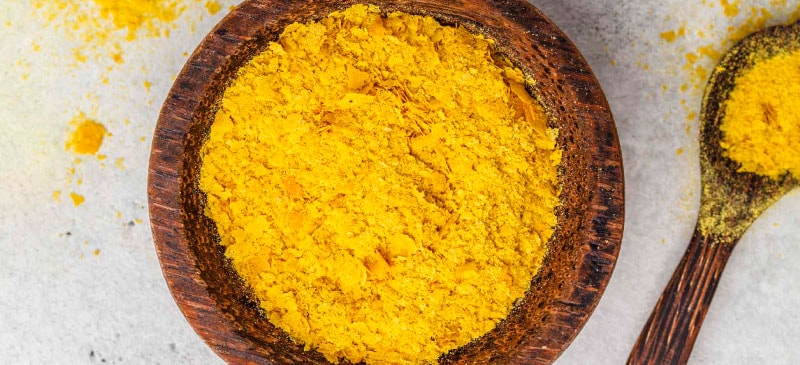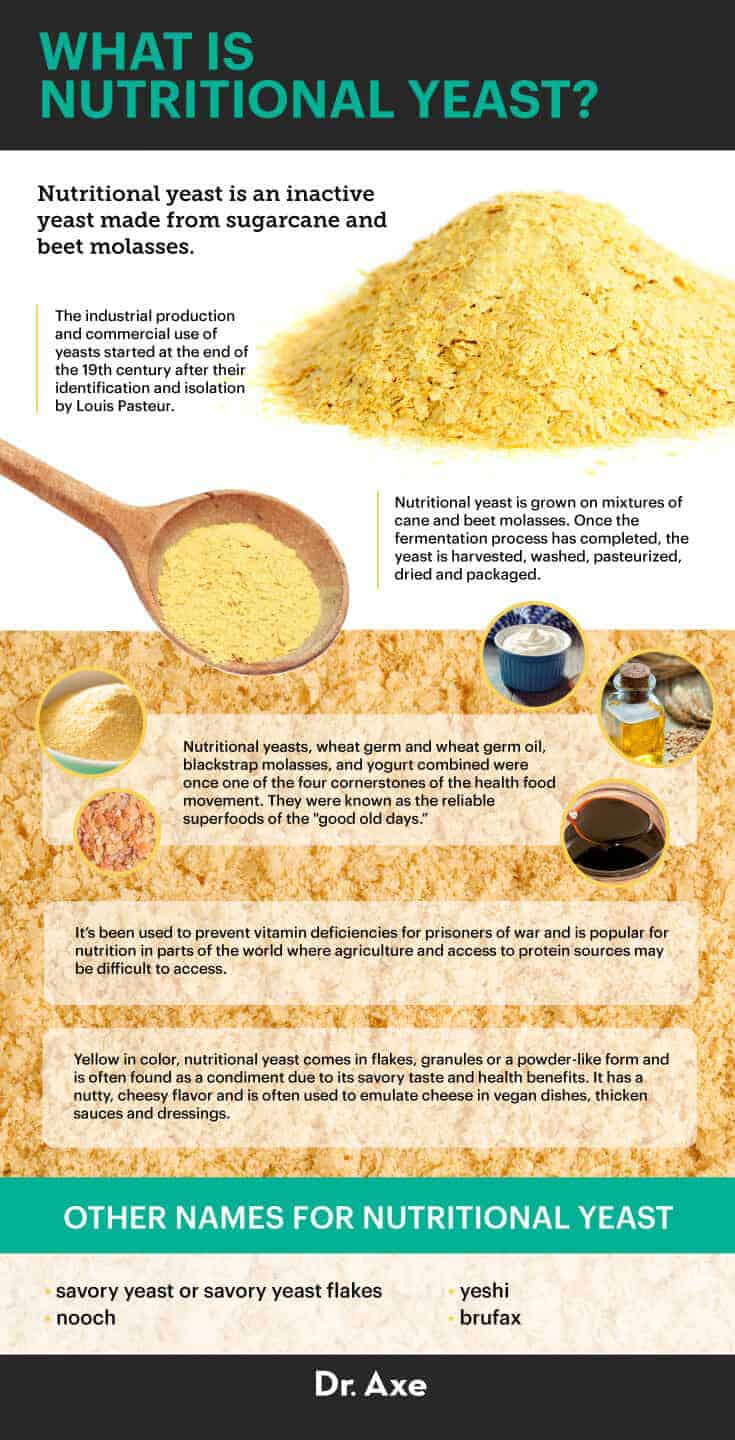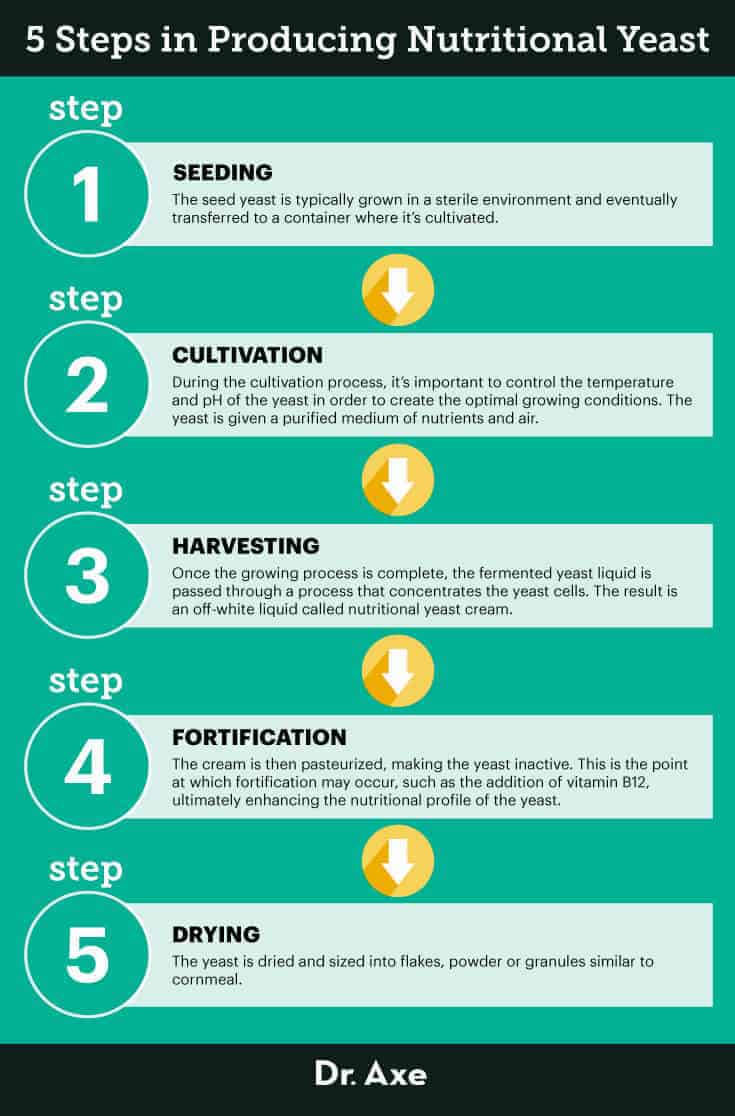This Dr. Axe content is medically reviewed or fact checked to ensure factually accurate information.
With strict editorial sourcing guidelines, we only link to academic research institutions, reputable media sites and, when research is available, medically peer-reviewed studies. Note that the numbers in parentheses (1, 2, etc.) are clickable links to these studies.
The information in our articles is NOT intended to replace a one-on-one relationship with a qualified health care professional and is not intended as medical advice.
This article is based on scientific evidence, written by experts and fact checked by our trained editorial staff. Note that the numbers in parentheses (1, 2, etc.) are clickable links to medically peer-reviewed studies.
Our team includes licensed nutritionists and dietitians, certified health education specialists, as well as certified strength and conditioning specialists, personal trainers and corrective exercise specialists. Our team aims to be not only thorough with its research, but also objective and unbiased.
The information in our articles is NOT intended to replace a one-on-one relationship with a qualified health care professional and is not intended as medical advice.
Nutritional Yeast: The Potential Antiviral, Antibacterial Immune-Booster
January 29, 2024

Nutritional yeast, also known as savory yeast or nooch, is an inactive type of yeast made from sugarcane and beet molasses. In the scientific form Saccharomyces cerevisiae, or sugar-eating fungus, yeast cells use the sugar for energy.
Yellow in color, nutritional yeast comes in flakes, granules or a powder-like form and is often used as a condiment due to its savory taste and health benefits. It has a nutty, cheesy flavor and is often used to emulate cheese in vegan dishes, thicken sauces and dressings, and act as an additional boost in nutrients because it’s filled with an array of B vitamins.
Is nutritional yeast good for you? How does it differ from regular yeast, and why should you consider adding this pantry staple to your next shopping list?
Here’s what you need to know.
What Is Nutritional Yeast?
Nutritional yeast is an ingredient that is grown on mixtures of cane and beet molasses. Once the fermentation process has completed, the yeast is harvested, washed, pasteurized, dried and packaged.
It’s available in flakes, granules or powder form and is sprinkled over dishes or used to enhance the taste and texture of soups and sauces.
This popular ingredient is used all over the world. Because of its unappetizing name, it has be given various other names and is commonly known as “nooch” (nüch) and “yeshi,” an Ethiopian name meaning “for a thousand.” In Australia, it is called “savory yeast flakes,” and the New Zealanders call it “brufax.”
In addition to supplying foods with a cheesy flavor, nutritional yeast is well-known for its nutritional value as well. In fact, it contains a long list of nutrients and is packed with fiber, protein, B vitamins, zinc and more.
Here are a few of the steps that are used to bring this nutrition powerhouse to the shelves of your supermarket:
- Seeding: Production begins with a pure parent yeast culture of Saccharomyces cerevisiae. The seed yeast is typically grown in a sterile environment and eventually transferred to a container where it will be cultivated.
- Cultivation: During the cultivation process, it is important to control the temperature and pH of the yeast in order to create the optimal growing conditions. The yeast is given a purified medium of nutrients and air.
- Harvesting: Once the growing process is complete, the fermented yeast liquid is passed through a process that concentrates the yeast cells. The result is an off-white liquid called nutritional yeast cream.
- Fortification: The cream is then pasteurized, making the yeast inactive. This is the point at which fortification may occur, such as the addition of vitamin B12, ultimately enhancing the nutritional profile of the yeast.
- Drying: The yeast is dried and sized into flakes, powder or granules similar to cornmeal.
Is all nutritional yeast the same? When browsing the aisles of your local store, you may notice that there are two distinct types, each of which has notable differences in terms of nutritional value.
Nutritional yeast is available in both fortified and unfortified varieties. Unfortified forms contain only the vitamins and minerals naturally present in the yeast, whereas fortified varieties contain micronutrients that have been added in during manufacturing.
The best nutritional yeast for you may vary based on your specific needs. Vegans, for instance, may benefit from a fortified version, which can provide a host of nutrients that may be challenging to get from food sources alone, such as vitamin B12. Others simply looking to bump up their protein or fiber intake may prefer to opt for an unfortified type instead.
Vs. Brewer’s Yeast
It’s important to note that nutritional yeast is not the same as brewer’s yeast. Brewer’s yeast is a byproduct of beer-making and used in making bread. It has a bitter taste.
While in the same scientific family known as Saccharomyces cerevisiae, the biggest difference between brewer’s yeast vs. nutritional yeast is the nutritional value of each. Nutritional yeast is far superior to brewer’s yeast and much higher in B-complex vitamins than wheat germ and many other natural food products.
Baker’s yeast, meanwhile, is an active form of yeast that is used to leaven bread and other baked goods. Nutritional yeast is deactivated and pasteurized during processing, which means that it’s inactive and won’t have the same effects as baker’s yeast in recipes.

Nutrition Facts
While it cannot replace whole food, nutritional yeast can help provide much needed vitamins, especially to vegans and vegetarians, who often have concerns about getting enough B vitamins in their diets. Each serving contains a low amount of nutritional yeast calories but a high amount of protein, vitamins and minerals.
A two-tablespoon serving of nutritional yeast (about nine grams) contains approximately:
- Calories: 35
- Total Carbohydrates: 3 g
- Fiber: 2 g
- Total Fat: 0.5 g
- Protein: 5 g
- Vitamin B12: 14 mcg (583% DV*)
- Thiamine: 6 mg (500% DV)
- Riboflavin: 6 mg (462% DV)
- Vitamin B6: 6 mg (353% DV)
- Niacin: 32 mg (200% DV)
- Folate: 405 mcg (101% DV)
*Daily Value: Percentages are based on a diet of 2,000 calories a day.
In addition, it also contains some zinc, pantothenic acid, magnesium, copper, manganese, iron, calcium and potassium.
Keep in mind that this shows a fortified version. You can purchase nutritional yeast that has not been fortified as well. It may be a good idea to blend the two for optimal health benefits.
Health Benefits
1. Preserves Immune Function
Nutritional yeast provides the compounds beta-1,3 glucan, trehalose, mannan and glutathione, all of which are associated with enhanced immune function. In fact, animal models have found that these compounds could help reduce the risk of infection in pigs by blocking harmful bacteria from attaching to the lining of the intestines.
Another animal model published in Anticancer Research even found that beta-glucan could be useful in the treatment of lymphoma in mice by decreasing tumor growth.
In addition, nutritional yeast has been shown to benefit human health, particularly by helping improve gut health due to its presence of probiotics. It’s also an easily accessible food source of protein, which plays a role in filling nutritional gaps to help keep the immune system in tip-top shape.
2. Holds Antiviral and Antibacterial Properties
In clinical trials, S. cerevisiae has been used to help “patients receiving antibacterial antibiotic therapy,” since it ” is the natural resistance of that to antibacterial antibiotics.” Yeasts have also been shown to hold antiviral and immune-modulating properties.
Due to the probiotic effects on nutritional yeast, it’s also been revealed as “a promising effective alternative or combination therapy for Candida infections.”
Meanwhile, animal studies show it can protect against E. coli, salmonella and staphylococcus.
3. May Improve Digestion
German monographs indicate nutritional yeast as a medicinal choice for diarrhea and loss of appetite, and studies showcase the digestive system benefits of nutritional yeast. The probiotics in nutritional yeast have shown positive effects on diarrheal patients, and although more research is needed, it may aid in the treatment of diarrhea.
In addition, nutritional yeast is helpful for those who suffer the symptoms of lactose intolerance since it does not contain any dairy products. One study published in the journal Clinical Infectious Diseases suggests that Saccharomyces cerevisiae expresses significant sucrase and some isomaltase activity but no lactase activity, and it has been proposed to improve malabsorption in patients with sucrase-isomaltase deficiency who intentionally or unintentionally consume sucrose.
4. High in Protein
Nutritional yeast is a complete protein containing at least nine of the 18 amino acids that your body cannot produce. This is great news, especially for vegans and vegetarians who may struggle to find enough protein sources in the diet.
As a protein food, nutritional yeast benefits the entire body. When paired with a variety of other protein foods as part of a healthy, well-rounded diet, nutritional yeast can boost protein intake and ensure you get enough to meet your daily needs.
5. Promotes Healthy Hair, Skin and Nails
Nutritional yeast contains many B vitamins, all of which tend to benefit healthy hair, skin and nails. Biotin, in particular, has been shown to support healthy hair, skin and nails. It also helps slow signs of skin aging, such as redness and skin spots.
Niacin, also found in nutritional yeast, is also often used to treat chronic acne and improve overall skin health.
6. Supports Healthy Pregnancy
Nutritional yeast is loaded with B vitamins, including thiamine, riboflavin, vitamin B6 and folate. Not only are these key vitamins crucial to cell metabolism, mood regulation, nerve function and more, but they’re also critical to ensuring a healthy pregnancy.
Folate is especially important. It can help reduce the risk of birth defects and optimize fetal growth and development. Studies show that low levels of folate during pregnancy may actually be associated with preterm delivery, low birth weight, neural tube defects and growth retardation.
7. Rich in Vitamin B12
One of the top benefits of nutritional yeast is its content of vitamin B12, an important water-soluble vitamin that is essential for DNA synthesis, red blood cell production and maintaining the health of the nervous system. Unfortunately, many vegans and vegetarians are at a higher risk for deficiency, as vitamin B12 is found primarily in animal products and select fortified foods.
The nutritional yeast B12 content can range, especially depending on whether it’s fortified or unfortified. However, studies show that supplementing with fortified nutritional yeast can be an effective way to restore vitamin B12 levels in those who are deficient.
8. May Support Healthy Cholesterol Levels
While research specifically on nutritional yeast’s effect on cholesterol, the beta-glucan it contains is known to help lower unhealthy LDL cholesterol. As research published in 2018 notes, “It has been demonstrated that β-glucans reduce levels of a non-high-density lipoprotein-cholesterol (non-HDL-C) fraction that contains LDL-C without affecting HDL-C or triglyceride levels. β-glucans have been used to reduce blood cholesterol levels since the 1960s.
9. Boosts Energy
The B12 in nutritional yeast has the ability to boost energy levels. That’s because vitamin B12 plays a crucial role in energy levels, helping with endurance, focus and more.
How to Use
Wondering where to buy nutritional yeast and how to use nutritional yeast in your favorite recipes?
You can easily find this superstar ingredient at most major grocery stores as well as many online retailers. Some of the most popular brands include Bragg nutritional yeast, Trader Joe’s nutritional yeast and Red Star nutritional yeast — although there are plenty of other varieties available as well.
Most popular among vegans and vegetarians, nutritional yeast flakes are delicious, adding amazing flavor and nutrition without the high fat and calories associated with cheese. For those who are lactose intolerant, nutritional yeast is a perfect choice because it can be sprinkled on pasta, salads, baked or mashed potatoes, soups, and even popcorn.
You can even use it to make a tasty nutritional yeast cheese sauce, without all of the lactose, fat or calories found in regular cheese.

Risks and Side Effects
What are the side effects of nutritional yeast? For most people, the potential nutritional yeast dangers are minimal, and it can be safely enjoyed as part of a healthy, well-rounded diet.
Not only is nutritional yeast gluten-free and vegan-friendly, but it’s also free of lactose, sugar, additives and preservatives.
If you have an allergy to yeast, it’s best to avoid this ingredient altogether to prevent food allergy symptoms, such as hives, itching, swelling and stomach pain. On the other hand, if you have a sensitivity to the active yeast found in bread, nutritional yeast is likely safe as it is pasteurized and deactivated during processing.
However, with all new foods, it’s always best to consume a small amount first and slowly work your way up to assess your tolerance and prevent adverse side effects. If you have any issues metabolizing folic acid, you may also want to moderate nutritional yeast intake and select unfortified varieties whenever possible.
Another common question is: Do you put nutritional yeast in the fridge? It does not need to be refrigerated, but it should be stored in a dark, cool and dry area to maximize its shelf life.
Although it can usually last around a year or two with proper storage, it’s important to monitor any changes in color, taste and smell to make sure it’s still good prior to consumption.
Final Thoughts
- Nutritional yeast is a type of inactive yeast that is made from sugarcane and beet molasses. It’s available in flake, powder and granule form and can be used to add a cheesy taste or thicker texture to your favorite foods.
- Available in both fortified and unfortified versions, the nutritional yeast nutrition facts can vary quite a bit. Typically, fortified versions are high in protein, fiber and B vitamins, along with an assortment of other important vitamins and minerals.
- Some of the top potential nutritional yeast benefits include improved immunity, better digestion, and enhanced hair, skin and nail health. It’s also thought to have antiviral and antibacterial properties and can support a healthy pregnancy as well.
- Best of all, it’s easy to enjoy as part of a healthy diet and can be used in a variety of recipes, including soups, sauces, snacks and more.

